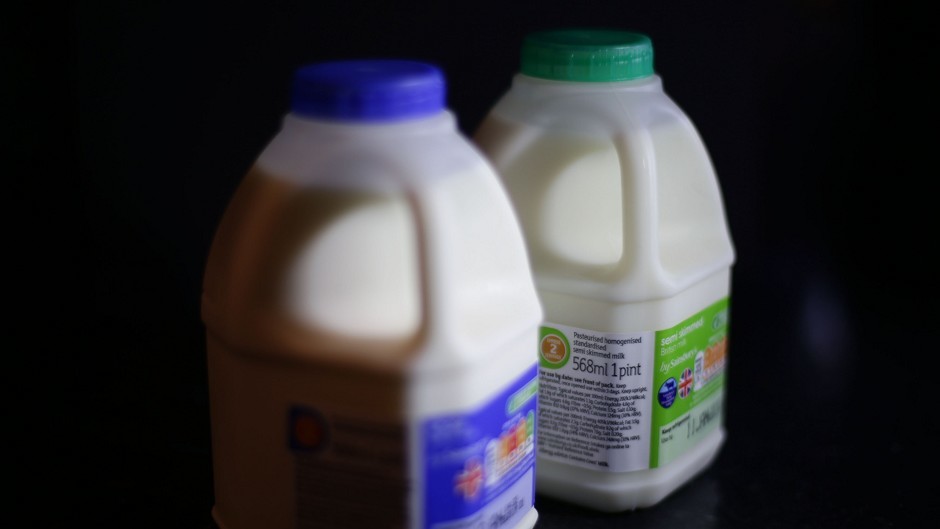Sainsbury’s has gone on the offensive this week by publishing figures of what it and its competitors allegedly pay farmers for their milk.
In a bid to be seen as one of the good guys in the current dairy crisis, the supermarket giant compared the price it pays farmers for four pints of milk to that paid by seven competitors.
In promotional material, it said: “At Sainsbury’s we support our British fresh milk farmers. Does your supermarket?’.
It put the farmer cost of producing four pints of milk at around 68 pence and published the price paid by each supermarket for four pints of milk.
Rather unsurprisingly it found three supermarkets – itself, Tesco and Marks & Spencer – to be the only ones paying above cost of production.
Marks & Spencer was quoted as paying 78 pence, Tesco 73 pence and Sainsbury’s 72 pence.
However, the catch Sainsbury’s doesn’t mention in its marketing push is that these retailer-aligned contracts are few and far between.
Farmers supplying all three supermarkets are paid a price based on formulas which take into account cost of production.
It said five retailers – Morrisons, Asda, Lidl, Aldi and Iceland – pay farmers less than the cost of production for their milk.
Morrisons and Asda were quoted as paying 56 pence, while Lidl, Aldi and Iceland were said to pay between 56 and 59 pence.
Although the Waitrose price was not quoted, it is highly likely this is similar to the Marks & Spencer price.
Farm minister Richard Lochhead said it was refreshing to see retailers “competing over the fairest deal for farmers rather than who can devalue milk the most”.
“I am interested to see the response from the retailers yet to state their case and provide further transparency for the public,” he added.
In a statement, Sainsbury’s food commercial director Paul Mills-Hicks said: “When we drop the price of milk to match competitors the cost of doing so is not passed onto our farmers.
“The challenge for us and the dairy industry is to ensure that customers understand that they can support the industry if they choose to do so.”
The move comes in the same week a House of Commons committee called for the remit of the government’s supermarket watchdog to be extended to protect farmers and small-scale producers.
According to the environment, food and rural affairs (efra) committee, all dairy farmers, and other small-scale producers, must be protected by the groceries code adjudicator (GCA), regardless of whether or not they have a direct relationship with the ultimate seller of their produce.
